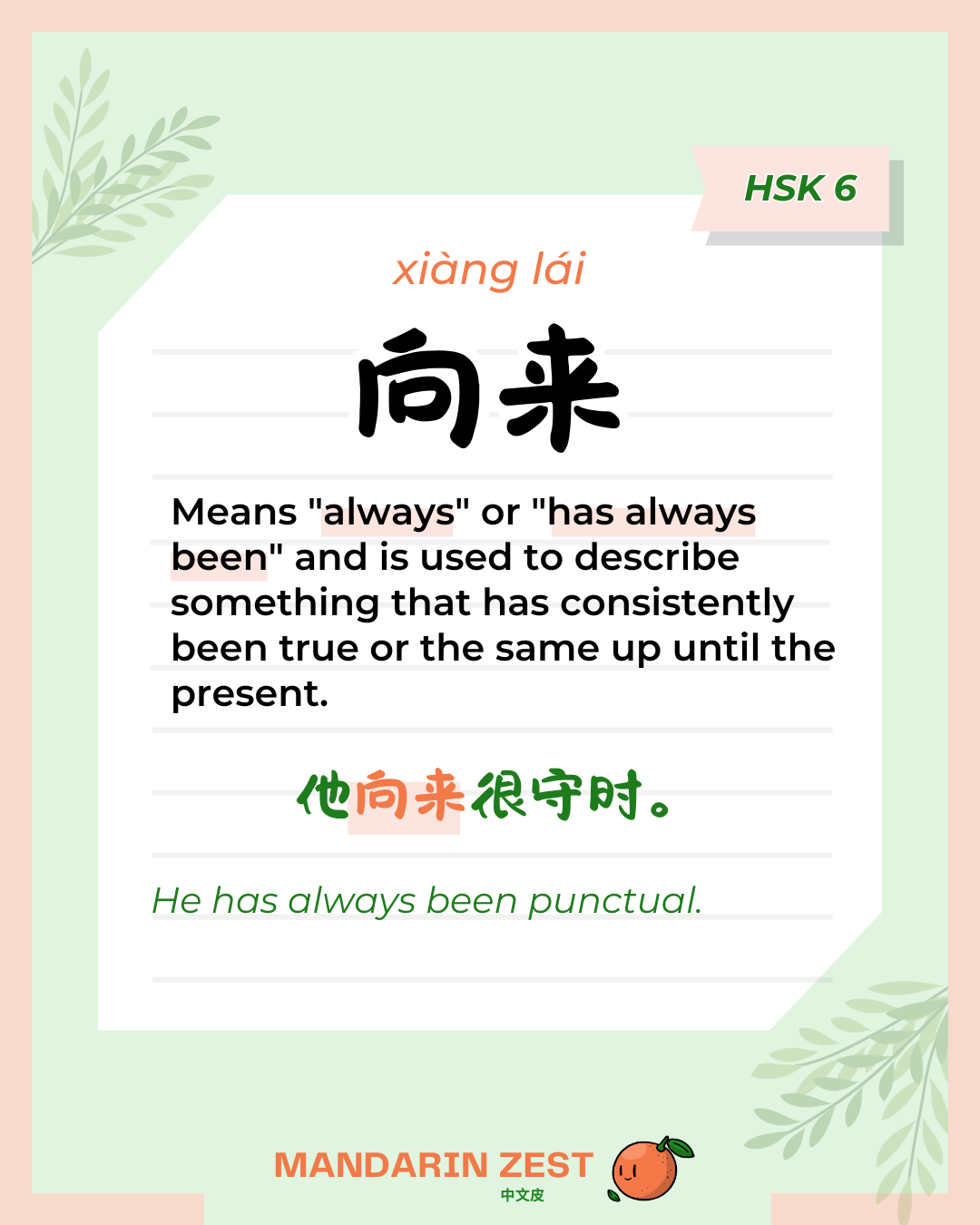向来 (xiànglái) means "always" or "has always been" and is used to describe something that has consistently been true or the same up until the present. It is similar to 从来, but unlike 从来, 向来 is not typically used in negative sentences.
You can add 都 after 向来 for emphasis. This grammar is interchangeable with 一向, which has the same meaning and structure.
Structure:
Subject + 向来(都)+ Verb/Verb Phrase
Sample Sentences
这家餐厅向来以高质量的服务和美味的菜肴闻名。This restaurant has always been known for its high-quality service and delicious dishes.
她向来喜欢安静的环境,所以不常参加聚会。She has always liked quiet environments, so she rarely attends parties.
我们公司向来重视客户的反馈,不断改进服务。Our company has always valued customer feedback and continuously improved its services.
In a Text
王叔叔向来很热心,邻居们有什么困难,他都会主动帮忙。比如,上次张奶奶生病住院,他向来负责每天送饭到医院,从来没有间断过。街坊们都说,王叔叔是个好人,向来为大家考虑,不求回报。最近社区举办环保活动,他又向来第一个报名,不仅自己参加,还鼓励大家一起行动。正因为他向来这么积极热情,社区才变得越来越和谐。
没有间断过 (méi yǒu jiàn duàn guò): has never been interrupted
街坊 (jiē fāng): neighbors; neighborhood
不求回报 (bù qiú huí bào): expecting nothing in return
Uncle Wang has always been very kind and helpful. Whenever neighbors encounter difficulties, he takes the initiative to help. For example, when Grandma Zhang was hospitalized due to illness, he was always responsible for delivering meals to the hospital every day without missing a single day. The neighbors all say that Uncle Wang is a good person who always considers others without expecting anything in return. Recently, the community organized an environmental protection event, and once again, he was the first to sign up. Not only did he participate, but he also encouraged others to join. It’s precisely because he’s always been so positive and enthusiastic that the community has become increasingly harmonious.




